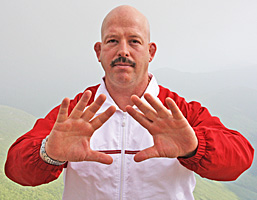Let’s play a game. Just for a moment I’d like you to mentally pretend that I’m going to give you some money.
You have two choices in this game:
The first, I give you one million dollars right now.
The second, I give you one dollar, and I double it each day for 30 days.
Which choice will you take?
If you’re like most people in this country, and the world – if you’re like the people running the show in Washington – you’ll take option number one.
And what a fool mistake it is.
Why? Because if I give you one dollar today and double it each day for 30 days, at the end of 30 days, you will have been given over $500 million dollars.
In fact, the total after 30 days would be ….
$536,870,912.00.
And if you could hang on for one more day, you’d have over a billion bucks.
You’d have $1,073,741,824.00.
Yet, most people, without thinking, would ask for the million. They want INSTANT GRATIFICATION.
They think, erroneously, that self-discipline is painful. Yet, as Deng Ming Dao once inscribed to me in a book, “In Discipline Lies Freedom.”
Put in economic terms, when there is no discipline with finances – there will be no freedom.
Look at what is going on today. Need money? Okay, just print more.
This, by the way, was the subject of a skit on Saturday Night Live when Jimmy Carter was el presidente. Maybe you can find the clip on You Tube.
In a peanut shell, Carter grinned from ear-to-ear when telling his advisers that there was no problem in a financial crisis because you could always “print more money.”
I was 13 when I watched this skit – and I never forgot it.
Even so, I was recently reminded of it when I read Joachim de Posada’s sensational book, “Don’t Eat the Marshmallow … Yet” – which you can purchase on amazon.com.
“Don’t Eat the Marshmallow … Yet” has already sold over 2 million copies – and there’s no end in sight because it teaches the “sweet” secret of success that few have the guts to share.
The book begins with a Stanford study in which a young child was put inside a room with a marshmallow. The teacher told the student if she didn’t eat the marshmallow for 15 minutes, she’d get another one.
Then the teacher left the room.
Upon returning the teacher discovered that MOST of the kids ate the marshmallow. BUT those who didn’t – when tracked over many years, turned out more successful than everyone else.
Wonder why?
Well, it wasn’t because they were smarter, prettier, had better genes or were more skilled. It was due to one thing: The ability to delay gratification a bit longer than anyone else.
Each morning, when you get up, do you ‘eat the marshmallow’ – metaphorically speaking? Do you do the easy thing first?
Or do you do that which will bring greater prosperity your way?
Each month, when you receive payment for work performed, do you pay yourself first and put at least 10% of all you earn away?
Or do you eat the marshmallow and pay everyone but yourself, first, so there’s never anything left for yourself?
In the evening, do you eat the marshmallow by watching hour after hour of television – or talking on the phone with friends to gossip about the day?
Or do you save the marshmallow by reading, writing, exercising or working a plan to get ahead and stay ahead?
When it comes to learning something new, do you invest in products that will help you increase your economic situation, or do you eat the marshmallow by blowing your money on food and entertainment.
Two choices.
Which will it be.
Matt Furey
P.S. Joachim de Posada has a brilliant sequal to “Don’t Eat the Marshmallow … Yet.” It’s called, “Don’t Gobble the Marshmallow… EVER.” Gotta love a man who comes up with titles like these, eh?

